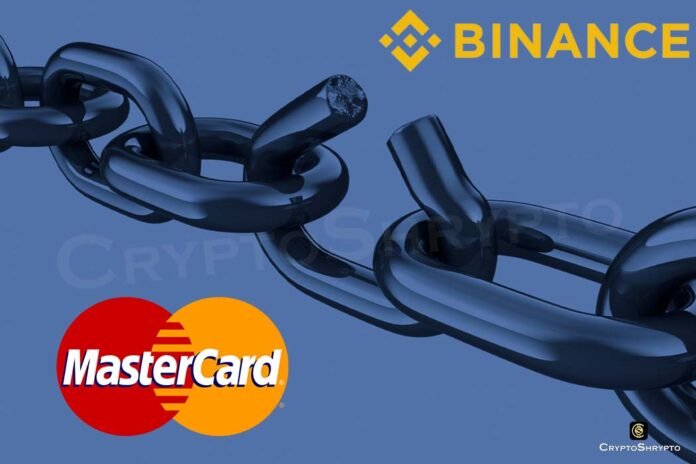On 24 August, Reuters reported that the global credit card leader, Mastercard and the prominent cryptocurrency exchange, Binance, have decided to part ways. This unexpected divergence marks a notable shift, leaving many in the cryptocurrency realm pondering the ramifications.
The once-forged partnership involved Binance extending its offerings to users in Argentina, Brazil, Bahrain and Colombia through a Mastercard-branded card.
A ripple of uncertainty courses through the crypto community, casting shadows on Binance’s regulatory turbulence of recent times. The decision to sever ties with Binance speaks volumes, hinting at the growing perception of potential risks tied to Binance’s ongoing legal battles and regulatory challenges.
Binance, with a strategic eye on the burgeoning South American markets, had launched a Mastercard-branded credit card earlier this year. This card facilitated seamless crypto transactions both in the virtual realm and the tangible world, bridging the gap between the digital and the physical.
The spotlight gleamed on Brazil, a powerhouse market that found itself among the top echelons of global significance in Binance’s narrative. A tale of enthusiasm for cryptocurrency expansion unfolded, fueled by the revelation that half of Brazil’s consumers had dabbled in crypto pursuits, exceeding the global average by a remarkable margin.
Similar fervor was unveiled in the narrative woven around Argentina’s adoption of crypto. The nation’s challenges, including rampant triple-digit inflation and limited financial access, rendered crypto adoption an attractive alternative. Binance’s vision of fostering financial inclusivity in such regions seemed to gain traction.
However, the abrupt severance of ties raises questions, sparking intrigue about Mastercard’s motivations. The timing and decision to part ways reverberate like a coded message, hinting at an underlying story.
Mastercard’s confirmation to Reuters that the partnership would conclude by September adds a layer of cryptic uncertainty.
Amidst this enigmatic shift, Binance’s spotlight on the dynamic South American markets now faces a shadow cast by the separation. The divergence with Mastercard looms as a signal, a shifting of gears that hints at Mastercard’s cautious dance in the realm of cryptocurrency.
In a web of interconnectedness, the choice to disentangle from Binance comes in the wake of Binance’s regulatory woes and CEO Changpeng Zhao’s legal tussles.
Speculation surfaces in hushed conversations. Could Mastercard have received advanced cues from US authorities about Binance’s impending legal storm? Theories ripple through the air, forming an unspoken narrative of behind-the-scenes whispers and potential collaborations.
As the cryptocurrency world watches this unfolding narrative, a sense of vigilance pervades. Users of the Binance platform, once greeted with a wealth of possibilities, now tread cautiously, sensing the intricate dance between partnerships, regulations, and the enigmatic world of crypto.




